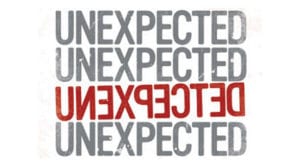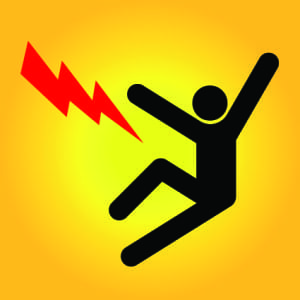
The advice “expect the unexpected” can lead to a great deal of criticism. [tweet this] For example, if one can expect something to happen, then it is (technically) no longer unexpected…and so on. Setting all the hair-splitting aside, to expect the unexpected is to anticipate the possibilities of events occurring in advance of them actually occurring. For example…
If you are preparing to drive somewhere during the rush hour you can expect the possibility of minor accidents and delays and plan accordingly by leaving early, taking another route, or having an alternative route in mind that you can take if you encounter problems. The mere act of thinking about a traffic problem in advance can improve situational awareness because it can help you capture clues about what is on the horizon.
 Recently in a class, I was talking about this and one of the participants shared a story of an incident where firefighters responded to a “routine” wires-down call. The details of the incident are detailed on an excellent website, www.vententersearch.com. CLICK HERE to view the story of how the fire crew was able to expect the unexpected and avoid an electrical shock.
Recently in a class, I was talking about this and one of the participants shared a story of an incident where firefighters responded to a “routine” wires-down call. The details of the incident are detailed on an excellent website, www.vententersearch.com. CLICK HERE to view the story of how the fire crew was able to expect the unexpected and avoid an electrical shock.
The conversation in class came on the heels of my sharing the details of a LODD where a firefighter exited the apparatus after arriving on the scene of a brush fire (not a wires-down call…a brush fire). As it was a “routine” brush fire on the side of the road, the crew probably already had it in their minds that the brush fire had been started by a discarded cigarette. It’s not only a plausible explanation for the cause, it is what we see most often. The crew did not expect the unexpected. The brush fire was caused by a downed power line…not a cigarette. The line was no longer arcing when the crew arrived. It was dark outside and none of the firefighters saw the power line. A firefighter stepped on it and died.
Chief Gasaway’s Advice
 Instead of giving the advice to expect the unexpected, I am going to recommend that responders anticipate the unusual. [tweet this] In other words, when you’re responding to, or arriving at a scene, be mindful of the factors that could be contributing to the problem that are out of the ordinary – the non-routine. The best way to get to thinking in this mindset is to set up scenarios for training and have responders brainstorm the possible causes and consequences. Think of it as seeing the end result of the event in advance and not being surprised by whatever comes your way because you were able to anticipate things.
Instead of giving the advice to expect the unexpected, I am going to recommend that responders anticipate the unusual. [tweet this] In other words, when you’re responding to, or arriving at a scene, be mindful of the factors that could be contributing to the problem that are out of the ordinary – the non-routine. The best way to get to thinking in this mindset is to set up scenarios for training and have responders brainstorm the possible causes and consequences. Think of it as seeing the end result of the event in advance and not being surprised by whatever comes your way because you were able to anticipate things.
Action Items
 1. What are some examples of unusual incidents you have responded to that caught you under-prepared for what happened? What did you learn from it? What would you do differently now to be better prepared?
1. What are some examples of unusual incidents you have responded to that caught you under-prepared for what happened? What did you learn from it? What would you do differently now to be better prepared?
2. Sometimes the unexpected is disguised by clues that are absent (it’s what you don’t see that is the real clue that there’s a problem). Share some experiences you’ve had where the absence of certain clues was the real indicator that there was a problem.
I’ll talk more about clues that are absent (called negative clues) in a future article.
_____________________________________________________________
The mission of Situational Awareness Matters is simple: Help first responders see the bad things coming… in time to change the outcome.
Safety begins with SA!
_____________________________________________________________
Share your comments on this article in the “Leave a Reply” box below. If you want to send me incident pictures, videos or have an idea you’d like me to research and write about, contact me. I really enjoy getting feedback and supportive messages from fellow first responders. It gives me the energy to work harder for you.
Thanks,

Email: Support@RichGasaway.com
Phone: 612-548-4424
Facebook Fan Page: www.facebook.com/SAMatters
Twitter: @SAMatters
LinkedIn: Rich Gasaway
YouTube: SAMattersTV
iTunes: SAMatters Radio

